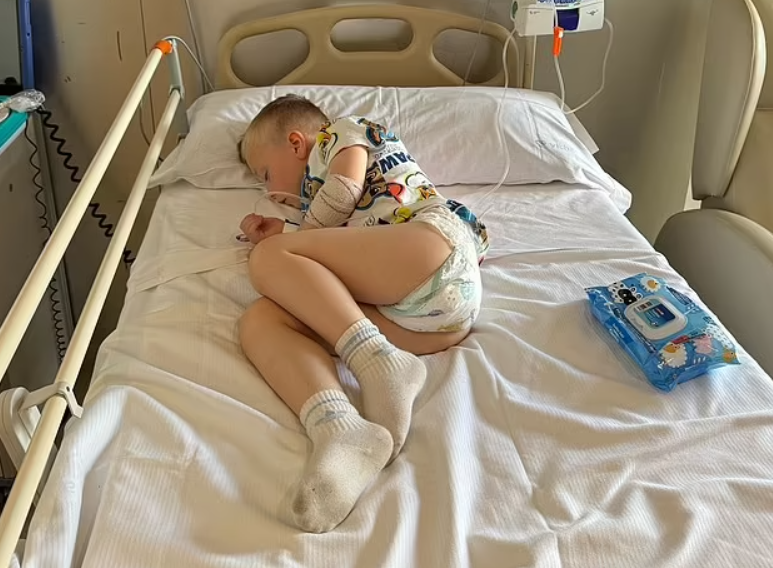Boy Was Rushed to the Hospital After Getting Cryptosporidium

© Media Wales
In April 2025, a routine visit to Cowbridge Farm Shop in the Vale of Glamorgan, Wales, led to a distressing health crisis for four-year-old Michael Carpenter. The boy had suffered from cryptosporidium.
Michael accompanied his grandmother during the Easter holidays, he petted and fed lambs—a cherished activity for many families.
Despite adhering to hygiene practices like handwashing and using sanitizer, Michael began exhibiting symptoms of illness, including a high fever and diarrhea, just days later, while on a family vacation in Malaga, Spain.
Family Reactions
His parents, Gareth Carpenter and Kate Wiejak, initially attributed his symptoms to common travel-related issues. However, as Michael’s condition deteriorated, he was admitted to a local hospital, where he spent three days receiving treatment for a severe gastrointestinal infection. Upon returning to Wales, further medical tests confirmed that Michael had contracted cryptosporidium, a microscopic parasite known to cause gastrointestinal illness.
Widespread Impact of the Outbreak
Michael’s case is among at least 74 confirmed instances of cryptosporidium infection linked to visits to Cowbridge Farm Shop during April 2025. Public Health Wales reports that 16 individuals required hospitalization due to the severity of their symptoms. The farm has since voluntarily suspended all public animal feeding activities and is cooperating fully with ongoing investigations.

Cryptosporidium is commonly transmitted through contact with infected animals, particularly young livestock like calves and lambs. The parasite can also spread via contaminated water, food, or surfaces. Symptoms typically include watery diarrhea, stomach cramps, nausea, vomiting, and fever, and can be particularly severe in young children and individuals with weakened immune systems.
Calls for Enhanced Public Awareness and Safety Measures
Michael’s parents have voiced concerns over the lack of warnings about potential health risks associated with petting farms. They emphasize the need for better public information to prevent similar incidents. “It’s only when something happens that you realize how serious it is,” Gareth Carpenter remarked. Public health officials echo this sentiment, urging visitors to such attractions to practice stringent hygiene measures, including thorough handwashing after animal contact.

While cryptosporidium infections often resolve without specific treatment, they can lead to serious complications in vulnerable populations. Health authorities advise anyone experiencing symptoms after visiting animal farms to seek medical attention promptly.
The outbreak at Cowbridge Farm Shop serves as a stark reminder of the potential health risks associated with animal petting activities. As investigations continue, it underscores the importance of public awareness. It also shows the importance of adherence to recommended hygiene practices to safeguard against such infections.
You might also want to read: Vermont Farmers Using Urine as Fertilizer – Here’s Why It’s a Game Changer


